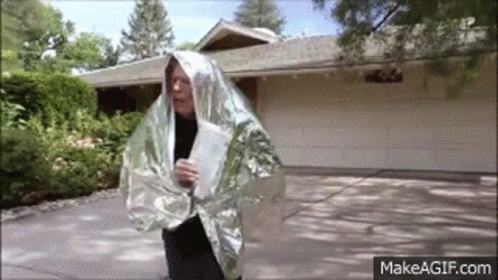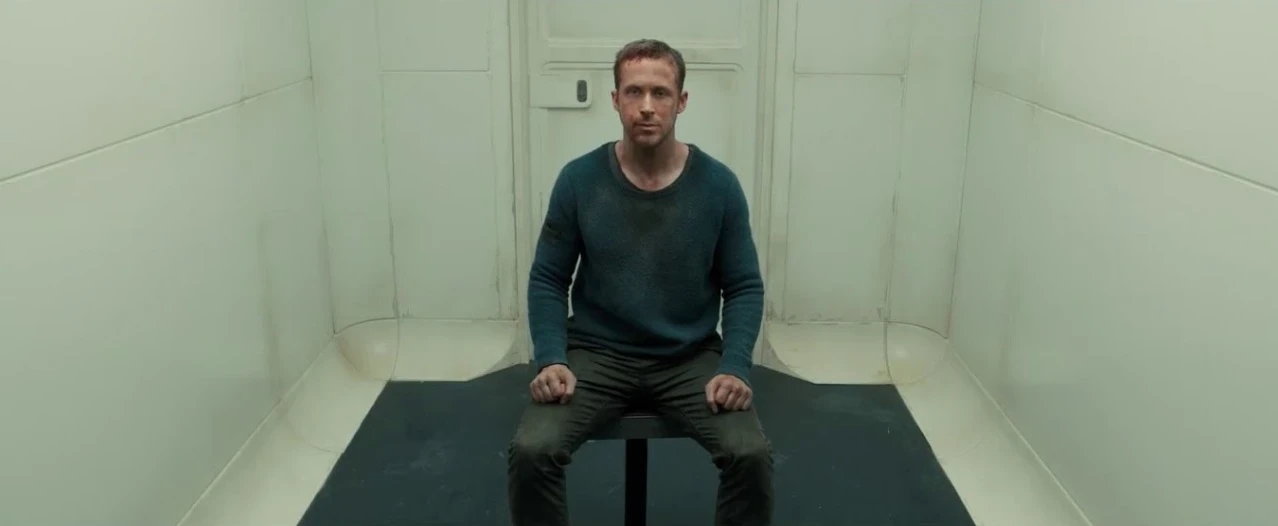The Sapienza computer scientists say Wi-Fi signals offer superior surveillance potential compared to cameras because they’re not affected by light conditions, can penetrate walls and other obstacles, and they’re more privacy-preserving than visual images.
[…] The Rome-based researchers who proposed WhoFi claim their technique makes accurate matches on the public NTU-Fi dataset up to 95.5 percent of the time when the deep neural network uses the transformer encoding architecture.
Ironically, a tin foil hat would probably work to prevent that kind of surveillance
A faraday hat.
wouldn’t that make it worse? basically any signal can bounce off you, making yourself even easier to track.
edit: wording
The tracking happens even with a big reflector/scatterer on your head, but as long as you dont wear it regularly, the system would have difficulty identifying you from wave propagation alone
So wear many different hats. Got it.
I mean, wouldn’t you anyway? You don’t wear your good Sunday tinfoil hat to work. That one’s for church and swinger club visits only!
Yeah, wouldn’t want to have to change hats, when I go to the swinger club after church.
Many different items of tinfoil clothing. Tinfoil shirt today, tinfoil codpiece for the weekend
Have you tried turning off the router?
Yeah, but then I had no excuse to wear a tinfoil codpiece.
Since it ‘figerprints’ you, changing your fingerprint by blocking parts of the signal with pieces of foil doesn’t seem like a terrible idea.
Now, the question is: is such a tactic like wearing gloves, or like using super glue?

Chuck vindicated. What a chicanery.
That’s a very unique fingerprint he’s got.
“Hey boss come look. This microwave is walking around again”
Great, another dystopian way for authorities to observe me on the shitter
Your poo time has expired and your pay is docked. Flushing will cost 50 dollars for the next week. Get back to work
You get poo time? That’s socialism!
All time is poo time when you’re close to the boss’s desk
Please drink a verification laxative?
Strange. Shitting on your bosses desk is still free. Hmm. Interesting loophole.
I’ve seen some article recently that the patterns of Wi-Fi/Bluetooth (don’t remember which one) interference with brainwaves can be scanned to reconstruct brainwave signature remotely, meaning that it might be possible to scan anyone’s EEG from Wi-Fi/Bluetooth distance. And there are some AI advancements for reconstructing inner monologue from EEG. So maybe we’re not so far from actual remote mind-reading.
A truly horrifying prospect.
Tuesday, in 2025.
No. It’s Friday.

🏆 Here is an award for the best comment in the thread.
This may be the largest gap between the quality of an actors performance vs the movie it’s in.
Truly an abysmal movie, but Rahul Julia is so much fun to watch in it.
I’m impressed there’s a gif for this 🤣
No! This is Patrick!
You had non work related thoughts on three separate occasions last week. Please report to HR for attitude adjustment.
Time for tin foil hats
accurate matches up to 95.5% of the time
and they’re more privacy-preserving than visual images
Oh fuck all the way off.
My thought exactly. Their definition of privacy is… interesting
When anyone or anything says that their product works “up to x%” I always presume it doesn’t really work at all.
Christ, 1% is included in that “up to 95.5%” vague bullshit statement.I believe the reason they had to say “up to” is because the “signatute” will vary day to day ever so slightly (natural weight fluctuation), and if you gain or lose weight it can change dramatically, so the AI would have to constantly consider that and adjust it’s records.
Honestly, unpopular opinion, but as long as it isn’t very short wavelength RF and they allow for self-hosted/open-source alternatives, I do find it a bit more privacy respecting than cameras, of course they have to say they are using the technology in public places.
It also has it’s ways of fooling it, instead of wearing a wig and a false nose, you could wear a carbon-infused silicone fat suit to change the way you interact with RF.
I hate it when commercials say “up to 100%.” It’s literally a pointless metric; that could mean anything from 0% to 100%, inclusive.
edit: Closed quote.
Sounds like an ad tailored specifically to putin
Why would someone research something like this? God damn, like use your life for good, homie
Well I heard about this and thought “this will be great for home automation”, but I also know that someone was equally excited about using this to rob people of basic freedoms or being a fucking creep or both.
If it’s your home why can’t you just have a camera or motion sensor. Rather than trying to adapt something that isn’t designed for the purpose.
Cameras require light, while radio waves works almost as well in darkness.
A motion sensor is an extra device that needs to be connected, have power and so on.
There are already radio wave motion- and room occupancy sensors where you can specify zones and so on, but if I could have personalized on top of that I’d take it.
Finally, using a thing for something useful other than its intended purpose is kinda fun.
I can imagine this being initially an accidental discovery like oh every time so and so’s body interacts with the WiFi signal it’s the same pattern… until someone starts exploring this further… and then some engineer or their manager started looking for applications for this. In my experience engineering researchers especially are very good with coming up with use cases for whatever tech they’re working with, with little ethical consideration.
I doubt it. You’d need to be looking really closely at the waveforms to notice this, so they were likely already doing something similar, like that research that can pinpoint where people are in a house based on their WiFi. They were probably already doing something creepy before they noticed that this was more straightforward than they expected.
Once you start playing with radiowaves and antenna you start noticing the intricate ways it plays with and around bags of water like bodies. I’m sure the original research on location/movement tracking was due to scientists trying not to get interference, later once they figured it out it was natural to see how much data they could get out of a radio interference profile.
I remember the original tech was going to be marketed as a way to tell if your old person (parent etc) had fallen down and stopped moving. Not the best use case, and then the privacy implications became clear. Once that happens the race begins to exploit the tech.
…But the eventuality here is something like a Star Trek tricorder that can take multiple vitals and detect irregularities from across the waiting room. Sensors that remember who was in a room and what settings they had. Etc. Some cool thing besides the bad stuff (microtarget those ads).
Everything is incremental progress in some way.
I remember years back someone doing experiments with Wi-Fi to see if a room was occupied based on signal attenuation.
This just looks like an extension of that.
Not everything is a giant leap
You think if people who publish their work publicly didn’t research things like this, they would just never be discovered?
At least this way, we all know about the possibility, and further research can be done to see what can mitigate it.
Incorrect bio-signature detected, drink verification can to continue your content.
Legendary reference
they’re more privacy-preserving than visual images.
hhhhwat. How can they identify you and also be privacy preserving? 🤔
It’s all AI. You should not worry about it. In fact you should not think about it. All is going to be fine.
This is fine.
Well, the alternative would be a camera in every toilet stall. See how our benevolent corporate overlords only have our best interest in mind?
They know you are a person and they can call your a certain UUID, but there will be a hard time matching you to your name etc.
Camera’s can do face recognition (if your face is even in the database) to know who you are.
This only works until the point where they have your form in a database which they can check…
We have heard this non-sense before, only to find it’s trivially easy to connect to your PID.
Never said that it wasn’t easy, it’s just harder than with facial recognition. In theory you could do it correctly in a way that it isn’t indentifiable.
Also this works in places where faces are protected
I’d imagine it’s like online advertisers: they convert your fingerprint to a token to try to sell you shit, but they allegedly don’t know who exactly you are or where you go. So visiting animatedllamaporn.com is still your little secret…
They can see you’re a person but not exactly who you are.
How is that a “fingerprint”?
Well they can identify you are the same person but not your identity… So it’s like a disenbodied fingerprint.
I suppose they could potentially make some database and train an AI on it someday to match to actual identities, but usefulness would be pretty limited at only 95% accuracy. That’s a false reading 1/20 times, so I suspect it would fail bigly to accurately recognize people from large data sets.
That’s a false reading 1/20 times
And when has something like that ever stopped anyone?
Well okay you’re not wrong, there is always some sucker out there.
Neat. Good luck protecting yourself from this.
On the other hand, I’m seriously considering opening an Etsy shop selling foil-lined clothes. I’m pretty good at sewing. What do you think?
Then I’ll look for the person with the fingerprint of foil-lined clothes
Not if everyone buys it, because then we’d all look the same
You’d need fabric with continuous metallic threads that form a complete mesh to actually block the 2.4/5GHz signals - most DIY foil approaches leave gaps that WiFi can still penetrate thru.
I feel like you’re overthinking this. There are people who buy crystal-infused drinking cups to reset their personal feng shui. (Spoiler: it’s just glitter.)
I really wish I didn’t have morals. It’s so easy to make money if you’re willing to fleece people.
e: autocorrect
Or sell a “WiFi mask” to modify the signal to look like celebrities.
It’s so true. Would you like to buy some Trump memorabilia? Made in 100% American spirit in China
I think you will be the one guy in the crowd wearing foil-lined clothes.
you can also take a picture of a person with a camera that senses light beams
The most primitive of physics concepts, the transmission/absorption/reflection of energy, is completely unknown to most people it would seem.
This shits already used by xfinity
Well, that’s quite different, it didn’t identify anyone
Someone’s going to use this to drop missiles on “baddies” with their sleeping families in 3 2 1
Reporting about starving children? That will be capital punishment for the whole family.
95.5% accuracy is abysmal for any use case these people want to use it for
what if you combine it with other types of imaging
Dingdingding
It’s not at all bad for an initial proof of concept.
I was having a nice day :(
Yes, according to your wifi fingerprint, you had.
https://www.youtube.com/watch?v=aQn9L-wkq_c&t=1m29s
So, you’re saying the tin foil hat people were right all along?!
Ironically, they’re still wrong, because even in their wildest conspiracies, they didn’t imagine Wi-Fi could be used to “take pictures” of a sort.
Tinfoil hat conspiracy theorists predate wifi by at least a decade























